Are you facing a dilemma with your university's administrative decisions? You're not aloneâmany students have found themselves in situations where they need to appeal a decision they believe is unjust. Crafting an effective appeal letter can be the key to making your voice heard and getting the outcome you desire. Join us as we explore the essential elements of a compelling appeal letter and tips to ensure your message resonates with university officials.

Clear and Concise Introduction
An administrative appeal at a university requires a well-structured introduction to outline the situation clearly. The introduction should state the purpose of the letter, providing a brief overview of the specific administrative decision being appealed, such as a grade dispute or disciplinary action. Include relevant details like the date of the decision, the department involved, and any pertinent university policies. It is important to maintain a formal tone while also conveying urgency and clarity, conveying the student's intention to contest the decision and seek a review. Elements such as the student's name, ID number, and contact information should also be incorporated for easy identification and reference within the university system.
Detailed Explanation of Circumstances
Students often find themselves in challenging situations that require them to appeal decisions made by university administrations. Personal circumstances, such as serious health issues, family emergencies, or unforeseen financial hardships, can significantly impact academic performance. For instance, a student diagnosed with a chronic illness (like Crohn's Disease) may face difficulties attending classes consistently, thus affecting their GPA. Additionally, a family crisis, such as a parent's sudden job loss, can cause emotional and financial strain, interfering with a student's focus on their studies. Universities typically have policies in place for such appeals, emphasizing the need for detailed documentation and personal statements to support the request for reconsideration of grades or academic standing. Students must clearly outline their situations, provide relevant evidence (medical records, letters from counselors), and demonstrate how these challenges hindered their academic performance while expressing a commitment to improve moving forward.
Documentation and Evidence Support
A successful administrative appeal at universities often requires comprehensive documentation and evidence supporting the claims presented. Key documents, such as academic transcripts (official records detailing course enrollments and grades), letters of recommendation (testimonials from faculty or peers highlighting achievements), and relevant policies (institutional guidelines regarding appeals) must be meticulously compiled. It is critical to include specific incident reports (detailed accounts of events leading to the appeal), emails (communication with university officials or departments pertinent to the case), and any additional supporting materials (evidence that reinforces the argument). Organizing this information clearly and logically enhances the appeal's effectiveness, emphasizing the validity of the request for reconsideration.
Polite and Respectful Tone
Students navigating the university administrative appeal process often face challenging situations that require clarity and respect. An appeal letter should begin with a clear statement regarding the nature of the appeal, referencing specific policies or decisions affecting the student's academic record. Detail the circumstances surrounding the issue, such as specific dates, events, or meetings that illustrate the student's adherence to university guidelines. Include any supporting documentation, such as transcripts or prior correspondence, to strengthen the case. Highlight personal efforts to resolve the matter, emphasizing the importance of the outcome for the student's academic journey and future career aspirations. Conclude by expressing gratitude for the committee's consideration and a willingness to provide further information if needed.
Strong Closing Statement and Request for Reconsideration
Strong closing statements in appeals to universities often emphasize key aspects such as the student's circumstances, previous academic performance, and the importance of reconsideration. The university's standard guidelines should be acknowledged. The appeal should highlight the student's commitment to future success and the belief in the institution's support system. A detailed request for reconsideration typically includes specific actions the university could take, such as reviewing academic records or adjusting policies. Overall, expressing gratitude for the consideration and openness to dialogue can create a positive tone for a favorable outcome.
Letter Template For University Administrative Appeal Samples
Letter template of university administrative appeal for academic probation.
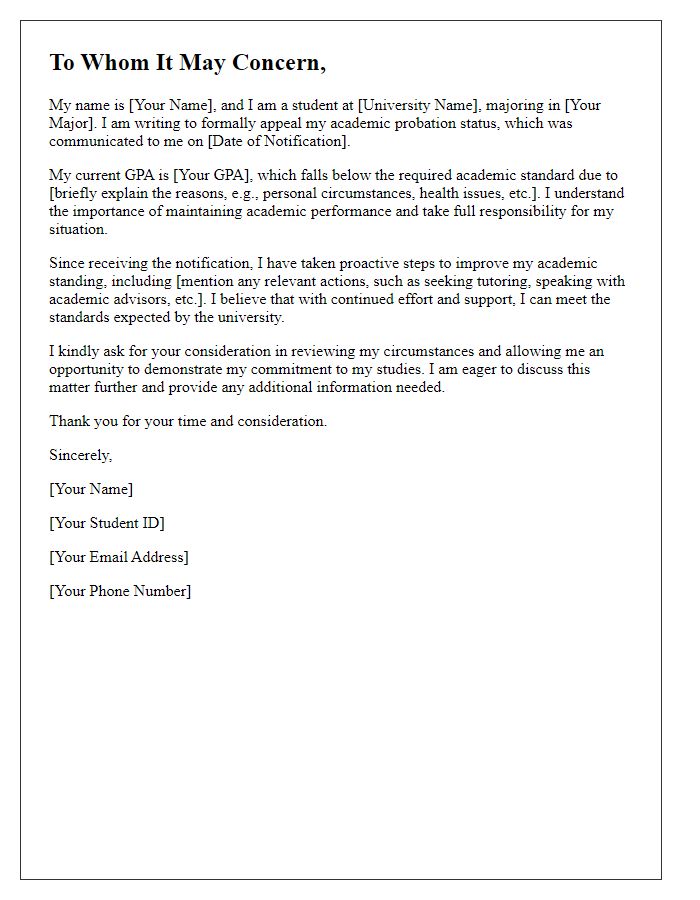
Letter template of university administrative appeal for financial aid reconsideration.
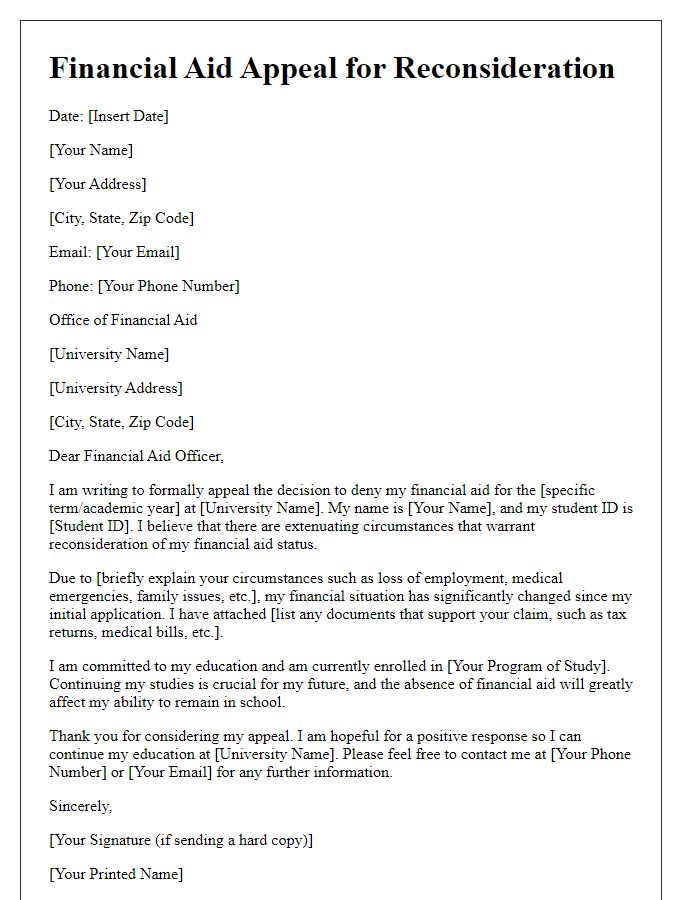
Letter template of university administrative appeal for housing assignment.

Letter template of university administrative appeal for disciplinary action.
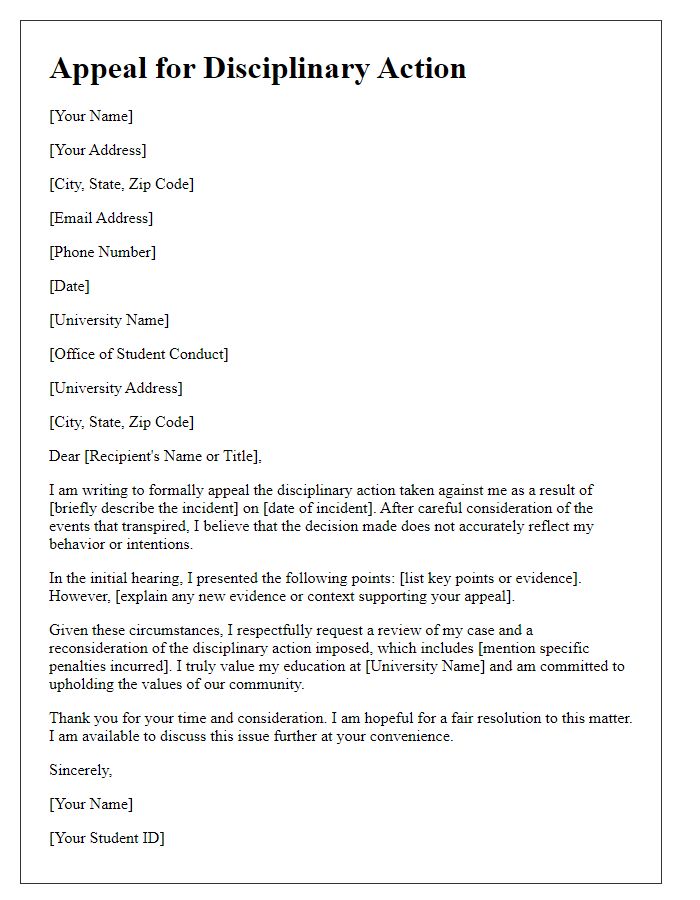
Letter template of university administrative appeal for enrollment status.
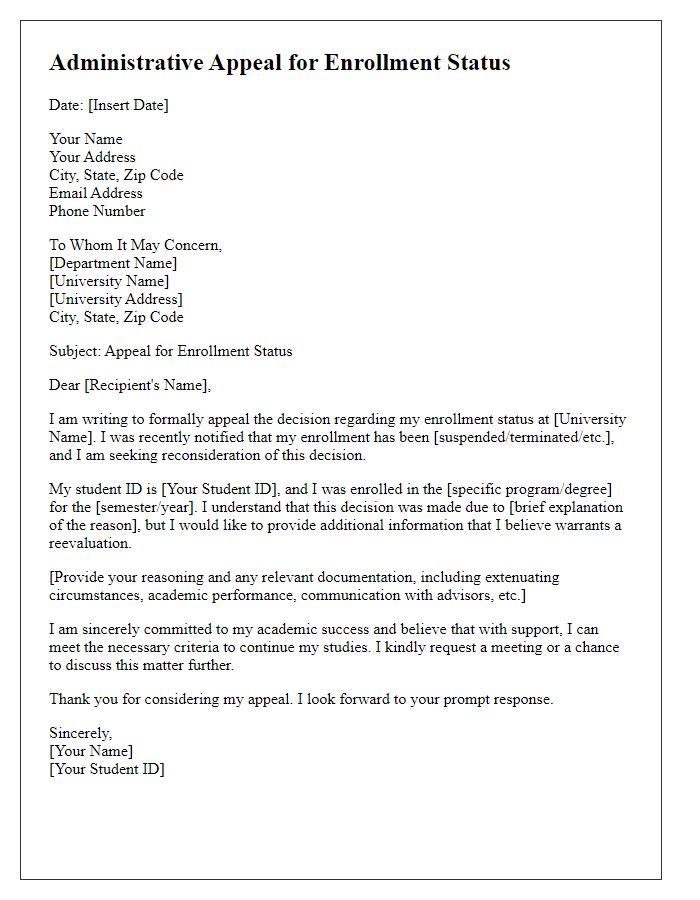
Letter template of university administrative appeal for graduation eligibility.
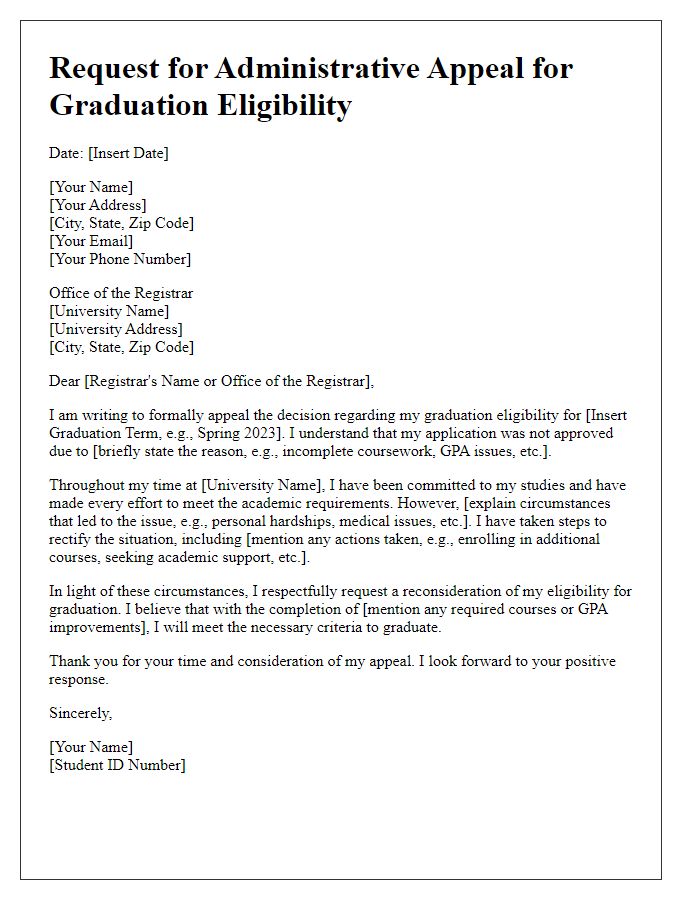
Letter template of university administrative appeal for course withdrawal.
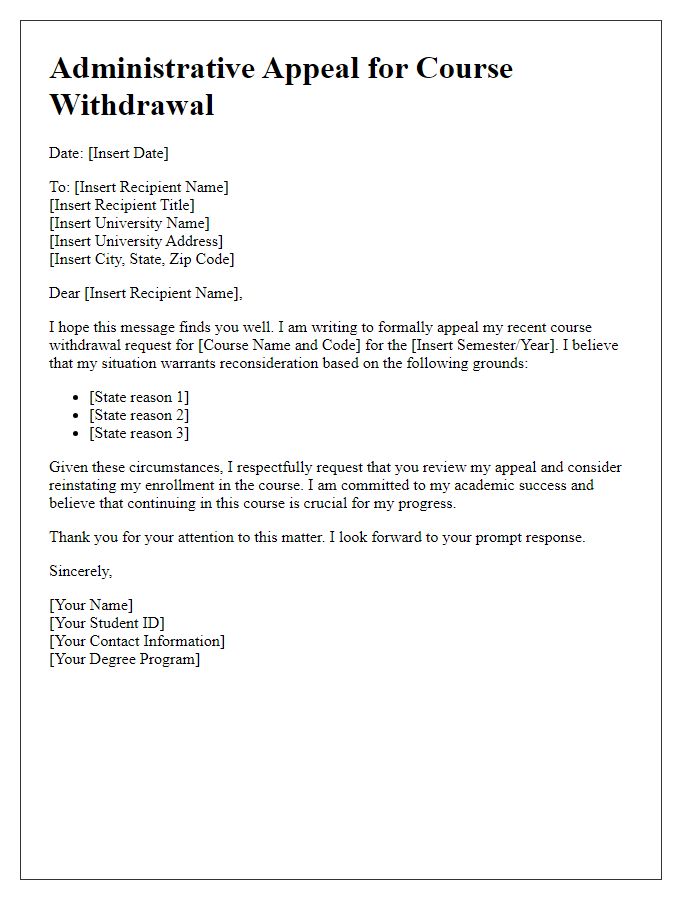

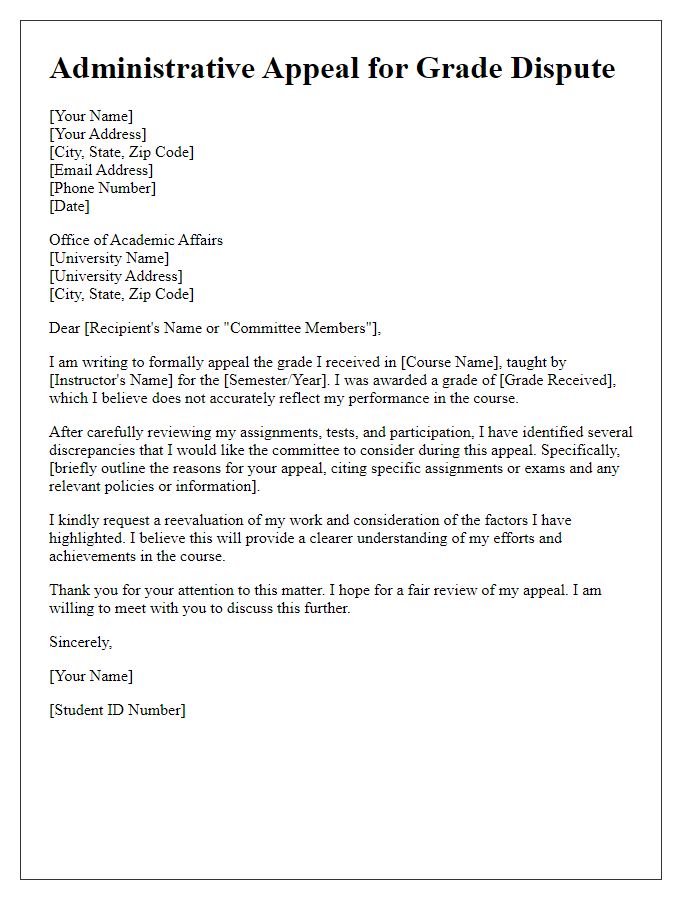
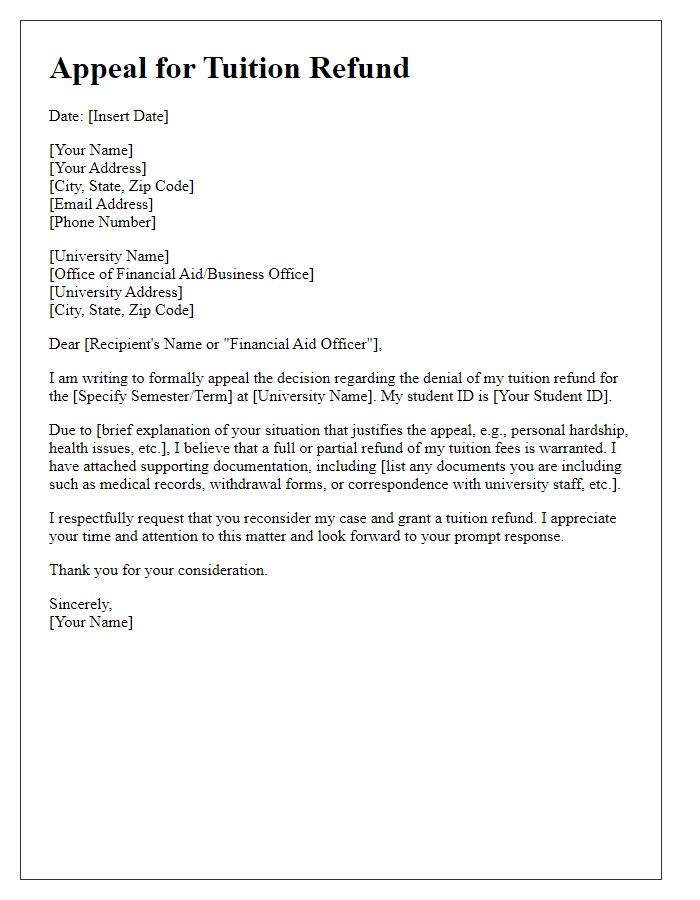
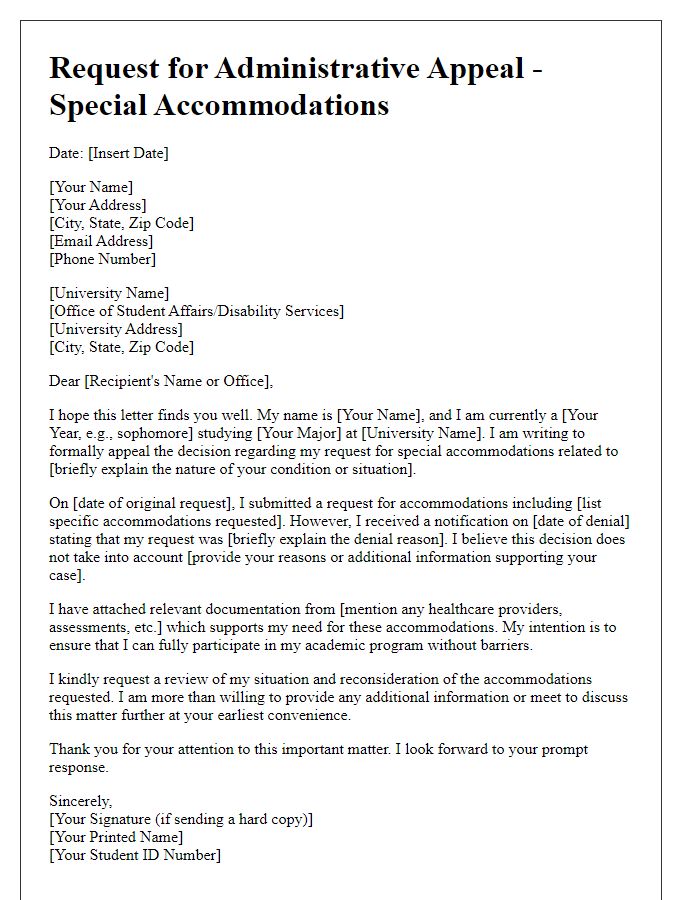


Comments